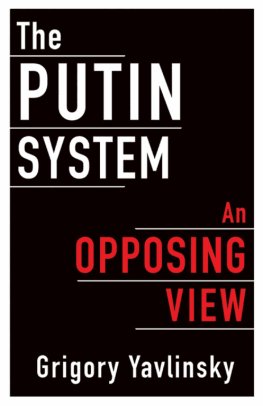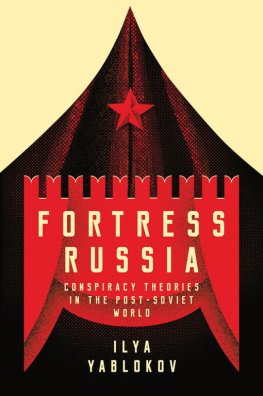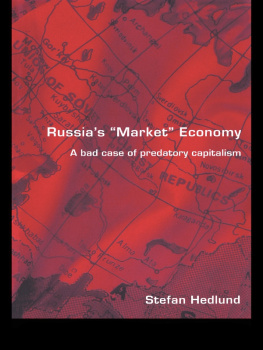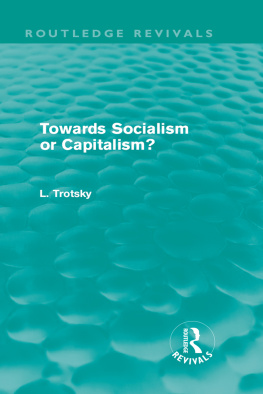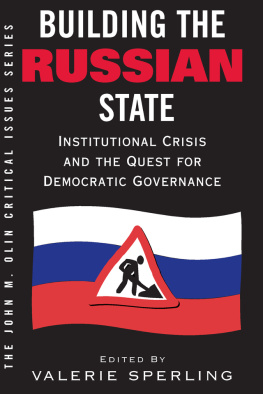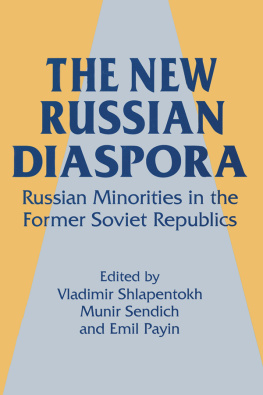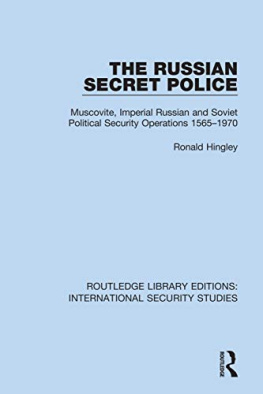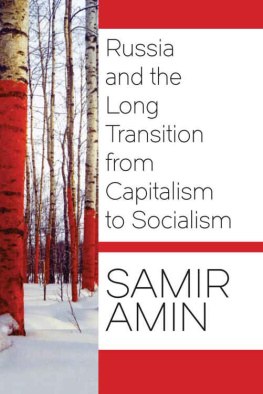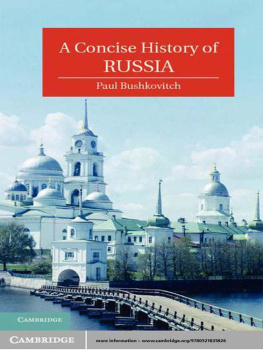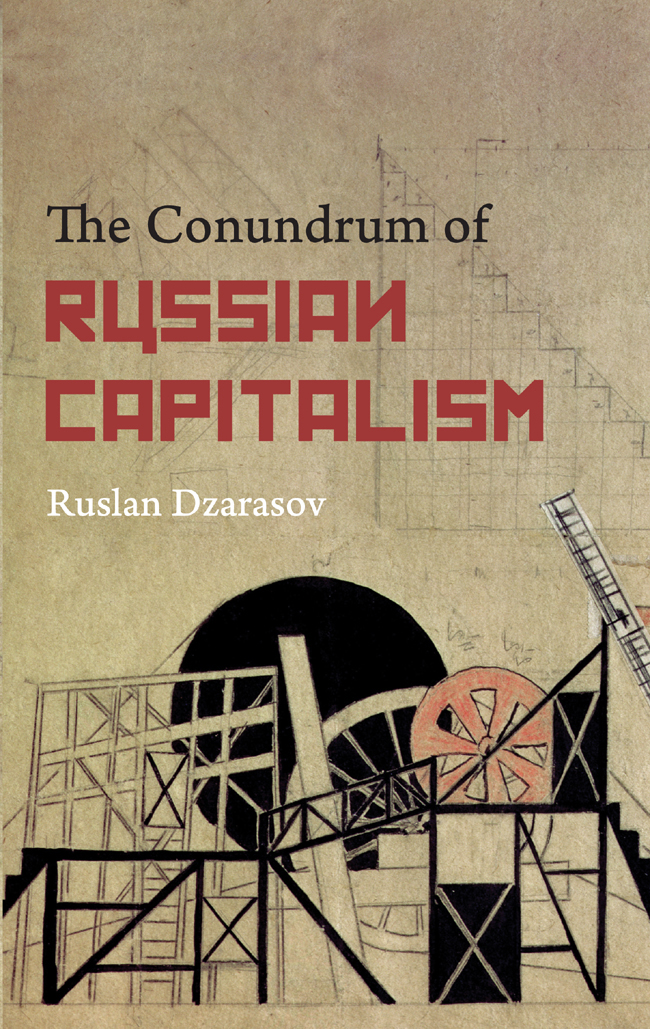The Conundrum of Russian Capitalism
The Conundrum of
Russian Capitalism
The Post-Soviet Economy
in the World System
Ruslan Dzarasov

First published 2014 by Pluto Press
345 Archway Road, London N6 5AA
www.plutobooks.com
Distributed in the United States of America exclusively by
Palgrave Macmillan, a division of St. Martins Press LLC,
175 Fifth Avenue, New York, NY 10010
Copyright Ruslan Dzarasov 2014
The right of Ruslan Dzarasov to be identified as the author of this work has been asserted by him in accordance with the Copyright, Designs and Patents Act 1988.
British Library Cataloguing in Publication Data
A catalogue record for this book is available from the British Library
ISBN 978 0 7453 3279 6 Hardback
ISBN 978 0 7453 3278 9 Paperback
ISBN 978 1 8496 4909 4 PDF eBook
ISBN 978 1 8496 4911 7 Kindle eBook
ISBN 978 1 8496 4910 0 EPUB eBook
Library of Congress Cataloging in Publication Data applied for
This book is printed on paper suitable for recycling and made from fully managed and sustained forest sources. Logging, pulping and manufacturing processes are expected to conform to the environmental standards of the country of origin.
10 9 8 7 6 5 4 3 2 1
Typeset from disk by Stanford DTP Services, Northampton, England Simultaneously printed digitally by CPI Antony Rowe, Chippenham, UK and Edwards Bros in the United States of America
Contents
List of Figures
List of Tables
Acknowledgements
I owe an enormous debt to the supervisors of my PhD thesis at Staffordshire University (UK), on which this book is based, Professors Peter Reynolds and Nick Adnett, for their continuous support and encouragement. They patiently worked with me over eight long years. I benefited enormously from their high academic standards, tolerance and understanding.
I also wish to express my profound gratitude to the staff of the department of economics at UMKC (Kansas City), who accepted me as a Fulbright visiting scholar. My special thanks to Professor Frederic Lee from the same department. He not only kindly invited me to stay at UMKC, but shared with me his enormous knowledge of post-Keynesian economics and the history of American business. Together with his wife Ruth, Professor Lee introduced me to American culture and way of life and the Missouri environment. I am grateful to Professor John Henry (UMKC) who discussed with me various topics which facilitated my research. Professor David Kotz (UMASS, Amherst) provided his valuable comments of my model. Professor Tae-Hee Jo organised discussion of my topic in Buffalo State College (New York) from which I gratefully benefited. I am much obliged to them and to all their colleagues who participated in the discussions.
My special thanks to consultant Dmitry Novojenov, who generously shared with me his wide knowledge of modern Russian business and was my indispensable co-researcher in Russia. I am also grateful to Dmitry Kuvalin at the Institute of Forecasting of Russian Academy of Sciences, who provided me with the results of his surveys and his advice. I owe a special debt to my colleagues from the Russian Academy of Sciences Professors Valery Grebennikov, Vitaly Manevitch, Vladimir Khoros and Viktor Krasilschikov and from Moscow State University Professors Viktor Cherkovetz, Alexander Buzgalin, Andrey Kolganov who provided invaluable advice content of my research, paving the way for its completion.
I am very obliged to a teacher of English from UMKC, Stephen Holland-Wempe, and to a sociologist and an interpreter, Renfry Clarke, for their help in editing my manuscript. I want to thank as well the former Chair and Commissioning Editor at Pluto Press, Roger van Zwanenberg, who encouraged me to embark on this project and supported the idea. I want to express my gratitude to the team at Pluto Press, especially David Shulman, including the managing editor Robert Webb, the copy-editor Jeanne Brady, Melanie Patrick, responsible for the cover design, Jon Wheatley, Jonathan Maunder, and Chris Browne, all of whom brought the manuscript through the complex process of production with a high degree of professionalism, cooperation and support and worked on marketing and publicity.
I want to thank my parents Inna and Soltan Dzarasov, who were a constant source of support and encouragement for me during all my years of work. My dear friends Christine and David Cole, Barbara, Jim and Edward Granter, Tricia and Alan Jones, Ishbel and Douglas Mair deserve a few words here for their help in improving my English and introducing me to English culture and the way of life, and, of course, for their magnificent hospitality which was a great relief from the hardships of my work in the UK. I am grateful to my schoolteacher Irina Voloshko who patiently taught me English when I was a teenager and not so easy to deal with.
Unless otherwise indicated, translations from Russian sources are my own.
It goes without saying that I am the only person to be blamed for any deficiencies in the work.
Introduction
O n the eve of the market reforms in Russia in the early 1990s, the prominent Russian television journalist Vladimir Pozner organised a talk-show with the provocative title Do We Need Capitalism?. The broadcast was seen as a triumph for liberals over supposedly backward opponents of the new system. Stanislav Shatalin, a highly regarded economist of the time, explained the essence of the new one true doctrine to viewers in a simple analogy: Imagine a small pie, cut into equal pieces. Thats socialism. Now imagine a big pie, cut into unequal pieces. Even the small pieces of the second pie are much bigger than in the first. Thats capitalism. Another guest on the programme then pointed to the simple, straightforward road said to lead to the promised consumer paradise: the state should get out of the economy. This, it was argued, meant that the state should make way for ordinary citizens.
During the same period, Russian television was also running an advertisement informing viewers of the democratic purpose of the changes that were under way. Shown first was a map of Russia, covered with smoking factory chimneys and electrical transmission lines. For the benefit of the dim-witted, the voice-over explained: This is the entire wealth of the country. Then a piece of a factory was cut from this map; And heres your share! The piece was transformed into a voucher which in the hand of an anxious Russian, who proceeded to scratch his head energetically while the voice-over asked, What do you do with a voucher?
On Pozners talk-show, he had explained with enthusiasm that privatisation opened the way to rapid enrichment for every Russian citizen: Get together with your family and decide how to use your vouchers. You might open your own business. Remember, you can now decide your future and that of your children and grandchildren. Pozners last words here turned out to be the only morsel of truth uttered in this and numerous other broadcasts, though his words were true in a sense completely different from the one he intended. Before long, ordinary Russians who had obediently accepted the reforms were to witness an unprecedented decline in production and fall in their living standards, the criminalisation of society, the collapse of the education and health care systems, and the transformation of Russia into a semi-dependent state. The national income pie had not only been divided into highly unequal pieces, but had also become stale and hollowed-out.


